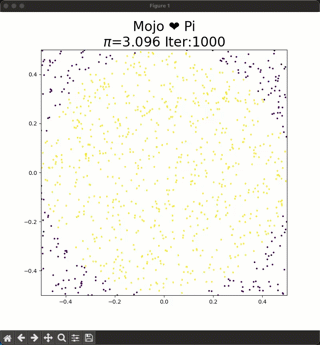
What’s new in Mojo 24.2: Mojo Nightly, Enhanced Python Interop, OSS stdlib and more
This will be your example-driven guide to Mojo SDK 24.2, as part of the latest MAX release. If I had to pick a name for this release, I’d call it MAXimum⚡ Mojo🔥 Momentum 🚀 because there is so much much good stuff in this release, particularly for Python developers, adopting Mojo.

The Next Big Step in Mojo🔥 Open Source
At Modular, open source is ingrained in our DNA. We firmly believe for Mojo to reach its full potential, it must be open source. We have been progressively open-sourcing more of Mojo and parts of the MAX platform, and today we’re thrilled to announce the release of the core modules from the Mojo standard library under the Apache 2 license!

Semantic Search with MAX Engine
In the field of natural language processing (NLP), semantic search focuses on understanding the context and intent behind queries, going beyond mere keyword matching to provide more relevant and contextually appropriate results. This approach relies on advanced embedding models to convert text into high-dimensional vectors, capturing the complex semantics of language.

How to Be Confident in Your Performance Benchmarking
Mojo as a language offers three main benefits, namely the 3 P’s: Performance, Programmability and Portability. It enables users to write fast code, do so easier than many alternative languages, and allows code to be run across different CPU platforms, with GPU support on the roadmap.

Mojo🔥 ❤️ Pi 🥧: Approximating Pi with Mojo🔥 using Monte Carlo methods
March 14th aka 3/14 or 3.14 is known as $\pi$ Day, and it honors the mathematical constant $\pi$ (pi), which represents the ratio of a circle's circumference to its diameter. On this special day, I wanted to dedicate a blog post to the beauty of mathematics, numerical methods, $\pi$, and Mojo. So join me on this journey as I implement a fast vectorized Monte Carlo approximation method of calculating $\pi$. Happy $\pi$ Day!

Evaluating MAX Engine inference accuracy on the ImageNet dataset
MAX Engine is a high-performance AI compiler and runtime designed to deliver low latency, and high-throughput inference for AI applications. We've shared how you can get started quickly with MAX in this getting started guide, and how you can deploy MAX Engine optimized models as a microservice using MAX Serving.

Announcing MAX Developer Edition Preview
Modular was founded on the vision to enable AI to be used by anyone, anywhere. We have always believed that to achieve this vision, we must first fix the fragmented and disjoint infrastructure upon which AI is built today. As we said 2 years ago, we imagine a different future for AI software, one that rings truer now than ever before

Getting started with MAX Developer Edition
Today we’re thrilled to announce that MAX Developer Edition is now available in preview for developers worldwide! 🥳🎉. In this developer blog post, we'll take an in-depth look at MAX, its key features and capabilities, and how to use it to deploy your first MAX optimized model. Using code examples we’ll illustrate its benefits, cover key concepts, and share additional resources to continue your MAX journey.

MAX is here! What does that mean for Mojo🔥?
When we started Modular, building a programming language wasn't our goal, it ended up being a solution to a set of problems. Specifically, as we were building our platform to unify the world’s ML/AI infrastructure, we realized that programming across the entire stack was too complicated.
Start building with Modular
Quick start resources
Get started guide
With just a few commands, you can install MAX as a conda package and deploy a GenAI model on a local endpoint.
Browse open source models
500+ supported models, most of which have been optimized for lightning fast speed on the Modular platform.
Find examples
Follow step by step recipes to build Agents, chatbots, and more with MAX.
